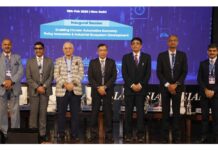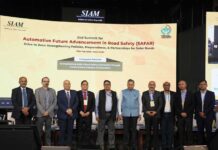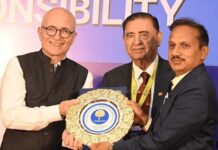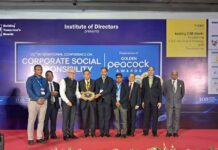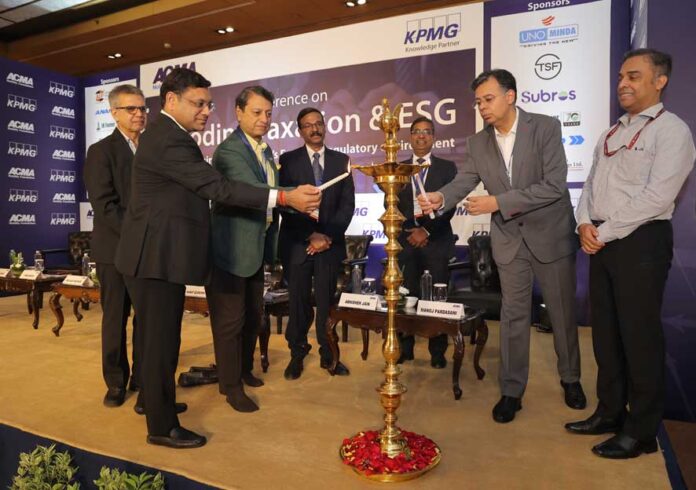
The ACMA Mobility Foundation (AMF), in collaboration with KPMG, hosted a high-level forum on “Decoding Taxation & ESG: Preparing Businesses for India’s Evolving Regulatory Environment” in New Delhi. The event brought together leading policymakers, taxation experts, and industry leaders to discuss emerging regulatory frameworks, tax reforms, and the integration of Environmental, Social, and Governance (ESG) principles across the automotive sector.
The conference was graced by Dr. Hanif Qureshi, IPS, Additional Secretary, Ministry of Heavy Industries, Government of India, as the Chief Guest. Key speakers included Mr. Vikrampati Singhania, President of ACMA & Managing Director, J.K. Fenner (India) Ltd.; Mr. Vinnie Mehta, Director General, ACMA; and Mr. Prashant Verma, Executive Vice President – Supply Chain, Maruti Suzuki India Ltd., along with other eminent industry experts and panellists from the automotive, finance, and sustainability domains.
The event served as a platform for businesses to navigate India’s evolving taxation policies while embracing ESG-driven sustainable practices, fostering growth and compliance across the automotive ecosystem.
In his welcome address, Mr. Vikrampati Singhania emphasised ACMA’s continued focus on policy dialogue and industry capability-building to ensure preparedness for evolving regulatory expectations. Sharing an update from ACMA’s sustainability programmes, he said, “Through our dedicated ESG cluster initiatives, ACMA has already certified over 200 ESG champions across the component sector. As India@2047 takes shape, tax rationalisation and ESG adoption will be the twin pillars of competitiveness and credibility for our industry.”
Addressing the gathering, Dr. Hanif Qureshi highlighted the government’s commitment to fostering a predictable policy environment that supports both competitiveness and responsibility. He said, “Recent tax reforms have brought greater predictability and efficiency to the automotive sector, addressing long-standing anomalies and simplifying compliance, particularly for MSMEs. As the industry now turns its focus toward sustainability and technology-led growth, the government remains committed to fostering policy coherence and ease of doing business. Together with industry partners, we aim to strengthen India’s position as a global hub for sustainable and intelligent mobility solutions by 2047, in line with the Hon’ble Prime Minister’s vision of Viksit Bharat.”
Mr. Vinnie Mehta, said, “India’s auto components sector is no longer just about scale, it is about earning trust and relevance in global supply chains. With evolving tax frameworks and ESG expectations worldwide, our industry must continue its push for transparency, cost competitiveness and responsiveness. Through forums like this, the ACMA Mobility Foundation is enabling the architecture to position Indian suppliers not just as input providers but as strategic partners in the world’s mobility roadmap.”
The conference featured sessions on taxation, regulatory outlook, and ESG transformation in the auto component industry, with speakers from KPMG India, BSR & Co. LLP, BMW India, Tata Motors, Anand Group, and ARAI sharing insights on aligning fiscal policy with sustainable business practices.
The ACMA Mobility Foundation reaffirmed its commitment to working closely with government, industry, and knowledge partners to create a transparent, future-ready, and sustainable automotive ecosystem aligned with India’s growth vision.


